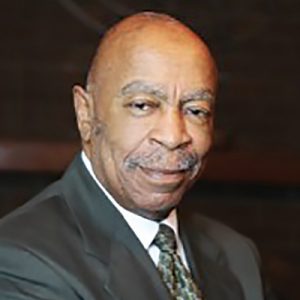Less than two years ago, the United States reached its lowest overall unemployment rate in 50 years. The expanding economy and strong labor market even reduced African American and Hispanic unemployment rates to 5.5% and 3.9%, respectively. Yet, the past 18 months have brought the most severe health pandemic, COVID-19, since 1918, the deepest political divisions and conflict since the U.S. Civil War, and the most unsettling racial conflict and protests since the 1960s. In the absence of effective communication, our cultural, gender, political, racial, religious, and other diversity all contribute to conflict within our society.
Unfortunately, it appears that some resistance to vaccinations for COVID-19 has evolved into a political matter as some Americans perceived them and the mandated wearing of masks as an infringement upon the rights of individuals. Meanwhile, some racial minorities, particularly African Americans, lack trust in health services due to the impact of negative historical experiences. In both instances, communication and trust issues require an earnest attempt at effective conflict resolution.
Success can be achieved when preparedness and opportunities intersect. The very best antipoverty program is educated, well-trained individuals with a job accepting personal responsibility for both themselves and their families.
I believe that most Americans are anxiously awaiting the easing of political tensions in our nation. As one who seeks to explore below the surface, it appears that political alignments are currently underway as dominant individuals and groups attempt to maintain their positions of economic, political and social power. In contrast, formerly disenfranchised individuals and groups seek to enhance their positions within our society; when leaders in business, civic organizations, faith-based communities, government, etc., apply pressure on elected officials, various conflict is inevitable.
When President Lyndon B. Johnson launched his “Great Society” and subsequent “War on Poverty” in 1964, I had recently entered my teen years. Like most members of the nation’s African American communities, I was aware of my family’s history of enslaved ancestors, racial segregation and “Jim Crow” laws which disenfranchised and removed economic, political, and social gains made by African Americans in the American South at the conclusion of the Civil War. Such laws were effectively enforced until 1965.
Reared in a very strict religious, working-class family, I viewed both the “Great Society” and “War on Poverty” as positive temporary pathways for underprivileged individuals to “lift off” to a greatly enhanced quality of life through education, training and employment opportunities. My parents informed my two siblings and me that we now had new opportunities beyond what they had experienced. They made clear that they expected us to take advantage of those opportunities and work hard at whatever jobs we acquired. Each of us became a college graduate and was a high achiever in our respective careers. It was always important for us to make our parents proud of us. Years later, I realized that many people failed to “lift off” with the support of government and for them, government and dependency became a way of life.
As I observed the lowest unemployment rates among African Americans in my lifetime during the fall of 2019, my discussions with others made me aware that many were not taking advantage of the vast opportunities available. It is now clearly apparent to me that there is a very serious gulf between many minority communities’ perceptions and available opportunities, largely due to the culture within many of them, along with leadership that has failed the underprivileged and underserved. I was raised to believe that charity begins at home. Therefore, it is incumbent on those of us who have been blessed with both opportunities for our mentoring along with our hard work to serve those communities, whether as elected officials or through civic activities. I find little more gratifying than serving as a mentor or role model to help others experience the dignity of dedication, hard work and providing for themselves, their families, and future service to their communities. Nothing contributes more to success than personal responsibility.
After serving a great number of years in and around antipoverty work, I truly believe the very best system to provide effective “lift off” for our minority communities is a formal introduction, acquisition and sustainment of the principles of our American free enterprise system. It will require needed steps for the enlightenment of the leadership and informing, educating, and training for many. To realize the greatest progress, the business community should play the “leading” role, while government plays a “supporting” role. Active engagement of civic, faith-based, and nonprofit organizations should also be encouraged.
Success can be achieved when preparedness and opportunities intersect. The very best antipoverty program is educated, well-trained individuals with a job accepting personal responsibility for both themselves and their families. I am fully prepared to view most of my current and future endeavors through the lens of free enterprise and assist with building bridges to mend the gulf between the underprivileged and underserved and the available opportunities of mainstream business communities.
Jim Echols, CEO
Renaissance Management and Training Solutions, LLP
Ofc.: 913-523-4890
Cell: 913-999-6557
Email: Jim.Echols@RenaissanceSolutionsLLP.com
Website: renaissancesolutionsllp.com.









